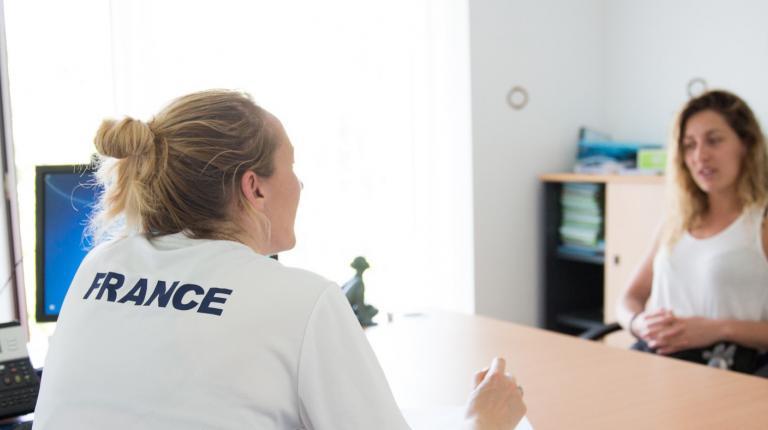At INSEP, various departments are mobilized to guarantee good mental health for its residents (the medical department, the performance department, the high-level department and the training department).
According to the World Health Organization, mental health is "a state of well-being that enables people to achieve their potential, cope with the normal difficulties of life, work successfully and productively, and be able to make a contribution to the community."
As part of regulatory medical surveillance (SMR), which has been compulsory since 2006 and was updated in 2016, INSEP psychologists see athletes once a year to carry out psychological assessments, which enable them to take stock of their personal, sporting, professional or school life. These assessments can be used to initiate psychological follow-up or to refer athletes for mental preparation at the athlete's request or on the psychologist's advice.
During psychological follow-ups, the professionals work on the difficulties the athlete may encounter in his or her sporting activities, interpersonal relationships (with staff, partners and family), dual projects and personal life. They also work with training groups on specific topics (e.g., managing interpersonal relationships, body and weight management, mental health prevention, motivational management, goals).
In addition to the work carried out by its psychologists, INSEP researchers of the "Sport, Expertise and Performance" laboratory are involved in projects aimed at improving the mental health of athletes.
- The MENTiS project, funded by the European Commission, aims to help athletes' entourage to detect signs of distress, to learn about their support role, and to advise athletes so that they receive the best possible support.
- The PAPS project, funded by the “Fédération Nationale des Associations et Syndicats de Sportifs”, focuses on psychosocial risks in sport, and in particular on socio-environmental and psychological risk factors. The ultimate aim of coordinating these two projects is to optimize the prevention of mental health risks for top-level athletes.
To find out more about the MENTIS project, visit the project website or follow its progress on X (formerly called Twitter).

